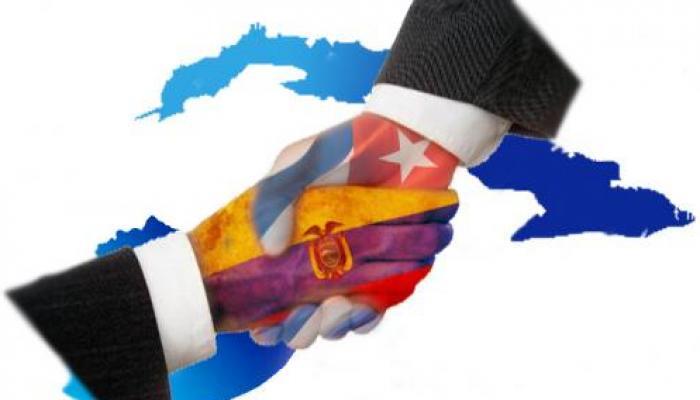The Community of Latin American and Caribbean States, CELAC, came into existence to foster social integration and the wellbeing of the peoples that comprise its regional system of thirty three nations. In a short period of time, CELAC has ostensibly become the active voice of the whole region.
From the start, CELAC has worked for equality and inclusion for all in its drive to eradicate poverty and hunger in all of its constituent partner states.
CELAC has brought to the region a new type of political relationship. These are relationships based on solidarity and on humanist cooperation between the nations of the group, without any exclusion or bipartisan arrangement.
These links have deepened during the period in which Cuba has chaired the organization. And this is largely possible, because Cuba, since the first day of its victorious Revolution, on January one, 1959, has spread its unqualified solidarity with sister nations around the world.
A prime example of how much can be achieved where there exists political will and brotherly cooperation is provided by the current accord existing between Cuba and Ecuador.
Ecuadorean President, Rafael Correa, has recently described these bilateral links as truly extraordinary.
It is Cuba`s medical assístance that has been crucial in providing high quality public health services right across the Ecuadorean territory, whose people are now adequately covered healthwise even in the most remote areas of that Andean country.
President Correa has also publicly recognized on numerous occasions the training of hundreds of Ecuadorean students at the Latin American School of Medicine, near Havana.
The President has made it clear that it is thanks to these Ecuadorean-Cuban agreements that Ecuadorean young people of low income families and often from the remotest areas of that nation now have the possibility of studying in an internationally recognized medical school and have the opportunity of joining the battle of improving the standards of health among the people of their own homeland.
And in yet another social sphere, as a result of an educational method developed in Cuba, tens of thousands of previously illiterate Ecuadorean adults, even in the remotest corners of that equatorial Ecuador, have learned to read and write.
"Yes, I can!" the title of the educational method, has been praised and enthusiastically adopted by the United Nations Educational, Scientific and Cultural Organization, UNESCO.
In fact, “Yes I can” has been largely instrumental in the struggle against illiteracy in many areas in Latin America, Africa and Asia and has contributed to the eradication of the scourge of illiteracy among millions of people worldwide.
This new type of fraternal relationship promoted by CELAC can be seen to work in both directions.
Ecuador was one of the first countries that came to the aid of Cuba when the Eastern part of the island was struck by that ferocious hurricane SANDY in October of 2012.
In the face the destruction, President Correa quickly dispatched food, water, medicines and other supplies by air to the assistance of the people in Eastern Cuba, victims of the destruction Sandy left in its trail.
In a rapid follow-up, a brigade of the Engineer Corps of the Ecuadorean Army was sent to the area to support the essential work of reconstruction. That brigade has already repaired or built from scratch new homes for hundreds of Cuban families.
These are examples of the solid links promoted by Cuba during its pro Tempore tenure as Chairman of CELAC. Links that are based on fraternal solidarity in the interests of sustainable human development in an area replete with both human and natural resources


